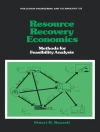This important collection tackles the failure of neoliberal reform to generate long-term growth and reduce poverty in many developing and transition economies. As dramatically demonstrated in the collapse of the WTO’s Seattle talks, there is increasing dissatisfaction, in both developing and developed countries, with the emerging neoliberal global economic order. The resignations of Joseph Stiglitz and Ravi Kanbur from the World Bank emphasize that this disillusionment with the orthodoxy now exists at the very heart of the establishment. Yet the increasing demand for an alternative to this orthodoxy is not being met. Over the last few decades, the older generation of development economists have been edged out of most major universities, particularly in the USA. The situation in most developing countries is even worse: although there is more demand for alternatives to orthodox development economics, these countries have even less capability to generate such alternatives. ‘Rethinking Development Economics’ is intended to fill this gap, addressing key issues in development economics, ranging from macroeconomics, finance and governance to trade, industry, agriculture and poverty. Bringing together some of the foremost names in the field, this comprehensive and timely collection constitutes a critical staging post in the future of development economics.
Зміст
Contributors in this Volume; Introduction; PART I. Overviews: 1. Changing Perspectives in Development Economics; 2. The Market, the State and Institutions in Economic Development; Globalization and Development; 4. Development and the Global Order; PART II. Development Experiences: 5. The East Asian Development Experience; 6. The Latin American Economies During the Second Half of the Twentieth Century – from the Age og ‘ISI’ to the Age of ‘The End of History’; 7. Rethinking African Development; 8. Transition Economies; PART III. Structural and Sectoral Issues: 9. New Growth Theory; 10. Structural Change and Development: The Relative Roles of Effective Demand and the Price Mechanism in a ‘Dual’ Economy; 11. Agriculture and Development: The Dominant Orthodoxy; PART IV. Trade, Industry and Technology: 12. Trade and Industrial Policy Issues; 13. Technology and Industrial Development in an Era of Globalization; 14. Industrial Policy in the Early 21st Century: The Challenge of the Global Business Revolution; PART V. Financial Markets and Corporate Governance: 15. International Private Capital FLows and Developing Countries; 16. The ‘Three Routes’ to Financial Crisis: Chile, Mexico and Argentina [1]; Brazil [2]; and Korea, Malaysia and Thailand [3]; 17. The New International Financial Architecture, Corporate Governance and Competition in Emerging Markets: Empirical Anomalies and Policy Issues; PART VI. Poverty and Inequality: 18. Rural Poverty and Gender: Analytical Frameworks and Policy Proposals; 19. Globalization and the Distribution of Income between and within Countries; 20. Increasing Poverty in a Globalized World: Marshall Plans and Morgenthau Plans as Mechanisms of Polarization of World Incomes; PART VII. Institutions and Governance: 21. On Understanding Markets as Social and Political institutions in Developing Economies; 22. Institutions and Economic Development in Historical Perspective; 23. Globalization, Global Governance and the Dilemmas of Development
Про автора
Ha-Joon Chang has taught at the Faculty of Economics and Politics, University of Cambridge, since 1990.












